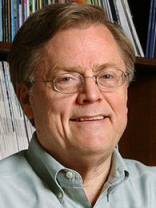About the Bruce McEwen Lifetime Achievement Award


The International Society of Psychoneuroendocrinology (ISPNE) has awarded the prestigious Lifetime Achievement Awards since 2000 to a distinguished line of outstanding scientists in the field of psychoneuroendocrinology, for their contributions to our understanding of brain-body interactions.
Note that the name for this award (formerly the Lifetime Achievement Award) was changed in 2020, when the award was renamed to honor PNE pioneer, Bruce E. McEwen. Bruce was awarded the lifetime achievement award in 2001.
The 2025 Bruce McEwen Lifetime Achievement Award will be given by the Society during its Annual Meeting that will take place in New Orleans, Louisiana September 3rd-5th . The awardee will present a lecture at the 2025 annual meeting, and the award will be presented in-person.
The deadline for submissions for 2025 is May 15th, 2025
All ISPNE members are invited to submit their nominations (name and a brief statement of support) by submitting your nomination through the link below.
2025 Bruce McEwen Lifetime Achievement Award Winner:
Dr. Robert Dantzer

Dr. Robert Dantzer has been awarded the 2025 Bruce McEwen Lifetime Achievement Award from the International Society of Psychoneuroendocrinology (ISPNE). Since 2000, ISPNE has awarded the prestigious Lifetime Achievement Awards for to a distinguished line of outstanding scientists in the field of psychoneuroendocrinology for their contributions to our understanding of brain-body interactions. In 2020, the award was renamed to honor PNE pioneer, Bruce E. McEwen, who is best known for his work on allostasis and allostatic load and who was himself awarded the lifetime achievement award in 2001.
Dr. Dantzer is receiving this award to recognize a legacy of achievements in the field of Psychoneuroendocrinology including 30 years as editor in chief for the society’s flagship journal Psychoneuroendocrinology and his ongoing contributions as founding editor in chief of the journal Comprehensive Psychoneuroendocrinology. As part of this award, Dr. Dantzer will be presenting a plenary talk at the annual conference in New Orleans on September 3rd, entitled “Mind-Body Interactions: What I Learned from Psychoneuroendocrinology and How It Helped Me to Discover Immune- to-Brain Communication Pathways.”
It is no coincidence that Dr. Dantzer is receiving this lifetime achievement award on the 50th anniversary of the academic journal’s inception in 1975 given that Dr. Dantzer spearheaded the journal’s success for over 30 years and continues to be pivotal for its continuation as consulting editor. Of this outstanding role, Dr. Dantzer has remarked “I have had the privilege of discovering ISPNE and living in its intimacy for 30 years through its official journal, Psychoneuroendocrinology. It has been a fascinating journey, during which I have learned a great deal.” Most of the contributors to psychoneuroendocrinology know of the names of Dr. Dantzer (as well as Dr. Rose-Marie Bluthé) through emailed communications that elate future authors with that critical yet understated phrase, “I am pleased to inform you that your manuscript has been accepted for publication.” Behind the scenes, Robert and Rose-Marie have sculpted the field towards rigorous, translational, and clinically significant work on brain-body interactions. These efforts have mentored generations of scholars across their own career stages, so it is not surprising that Dr. Dantzer remarks how this behind-the-scenes daily work has been fulfilling, “As a person, what is important to me is to give back what I have received by helping others to achieve their goals.”
Yet, his career encompasses a much broader legacy of achievements. Dr. Dantzer received his DVM in Veterinary Medicine at the University Paul Sabatier in Toulouse France in 1967 – one year before the ISPNE was formed in 1968. By 1971, he became Dr. 3rd cycle at the University Paris VI in Paris France and rounded out his educational tour de force in 1977 when he received his PhD in Behavioral Neuroscience from the University Paul Sabatier in Toulouse France. Soon thereafter, he became director of research 2nd class at the Laboratory of Veterinary Pharmacology in Toulouse France, University of Bordeaux, and then at the French National Institute of Medical Research (INSERM) in Bordeaux France where, throughout the 80s he bridged the emerging disciplines of psychoneuroendocrinology and psychoneuroimmunology to illustrate the profound impact of stress on the body and to show that the communication of the brain with the immune and endocrine systems are bidirectional. From 1990 until 2006, Dr. Dantzer headed the Laboratory of Integrative Neurobiology in Bordeaux France which was the leading laboratory in the study of cytokine production and action in the brain and, ultimately, impacting behavior. In 2006, Dr. Dantzer moved to the University of Illinois at Urbana- Champaign to lead a program in immunology and behavior before moving, in 2012, to the University of Texas MD Anderson Cancer Center to study the pathophysiology of fatigue and other cancer-related symptoms.
Robert Dantzer has published over 400 peer-reviewed articles and over 100 book chapters and 15 books (edited and written). He has been cited nearly 70,000 times with an H-index that outpaces the triple digit temperatures of a summer in Texas – his home since 2012. Published in Nature and cited over 8000 times, his 2008 review “From inflammation to sickness and depression: when the immune system subjugates the brain” elegantly summarizes Dr. Dantzer’s overarching contributions to the field of psychoneuroendocrinology, providing a compassionate and accessible understanding of physiology within those suffering from depression. Infections and other immune challenges make people sick and change their behavior, with many such sickness behaviors caused by the immune system. It is easy to understand how altering behavior when fighting infection is adaptive, and Dr. Dantzer’s lifetime of work has illustrated that it is just as adaptive to alter behavior when those immune pathways are activated during depression. Is it just as easy to understand? No, judged merely by the abundance of acronyms, hyphens, and multisyllabic words far afield from his native language. Dr. Dantzer reveals the depth to which he has drilled down along these neuroendocrine-immune pathways across translational animal models as well as within clinical populations. His work shows empathy for patient populations dealing with depressive episodes or chronic illness, revealing that the depression component is longer lasting than acute illnesses and depression can become a consequence of decompensation of mechanisms that regulate sickness. This research makes it possible for individuals struggling with depression to understand it as a physical condition and, similarly, those coping with chronic illnesses and health challenges like cancer can understand that their mood states might be depressed .
It is with enthusiasm and a deeply felt honor that ISPNE presents the 2025 Lifetime Achievement Award to Dr. Robert Dantzer.
Previous Lifetime Achievement Award Winners
|




